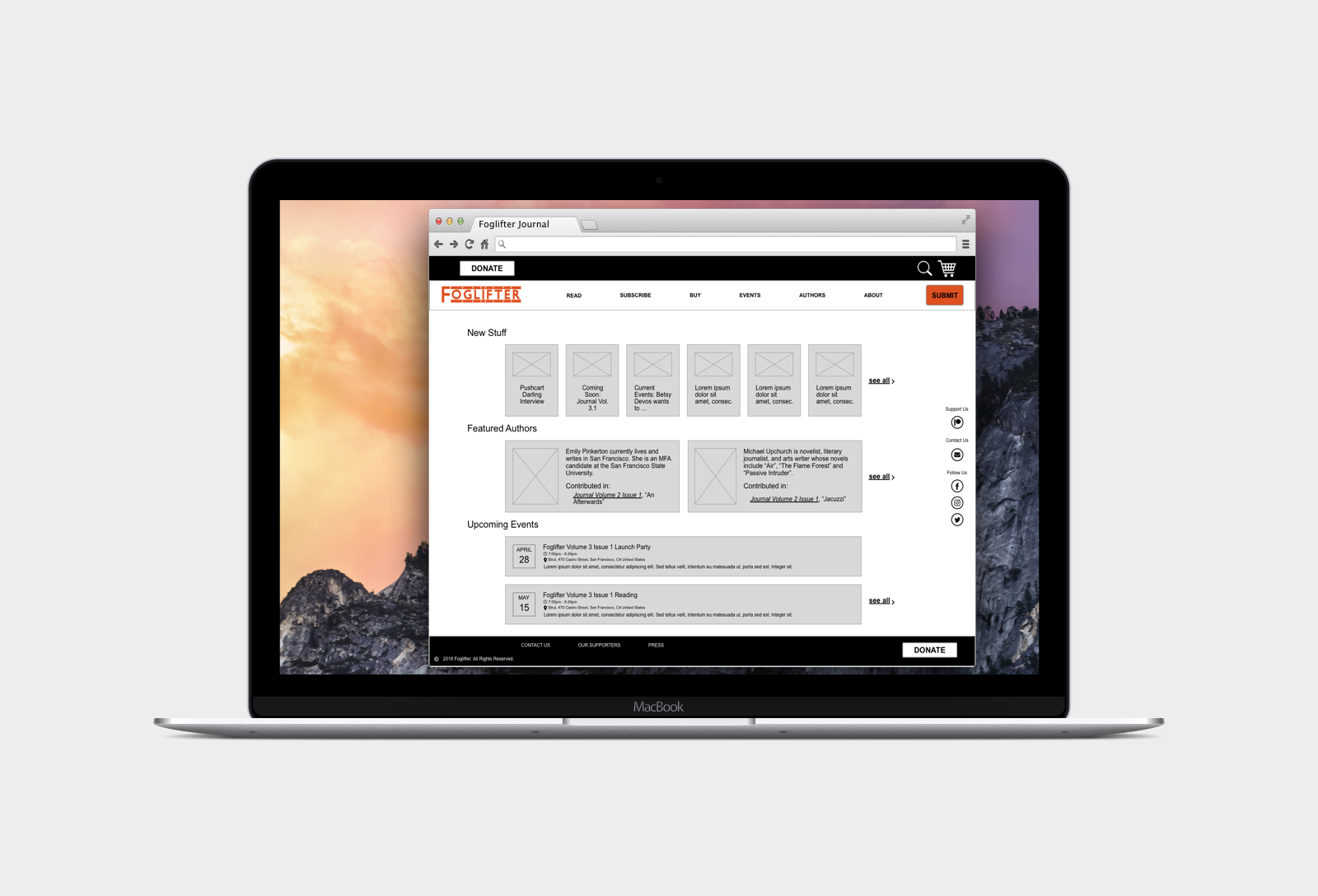Content strategy and website redesign for San Francisco's last remaining queer literary journal
Foglifter Journal & Press needed tools to aide their business shift from primarily a literary magazine to a small publisher of books.
Overview
Foglifter’s website was originally created to function just well-enough to handle two major aspects of running a journal:
1) to serve as a platform for writers to submit work for consideration, and
2) where readers can buy copies or subscribe to the magazine
Since they’re expanding their business into becoming a publishing house, they're looking for a website redesign that serves as their "calling card" on the internet and a tool to aide their expansion into the national stage.
Goals
Create a website that serves as a tool to market new authors, generate book sales, drive magazine subscriptions, and engage users by publishing fresh content.
Responsibilities
Market research, strategy, ideation, wireframing and prototyping
Timeline & Team
3-week consultancy / Martin Maaloumi - UX Designer & Researcher & Genebie Cruz - UX Designer
The New Design
New Foglifter website prototype
We delivered a live prototype and annotated version of our wireframes. I plan on iterating our designs to add graphics on the user interface.
Designed their website with the correlation between information architecture and content strategy in mind
Our first task was to inspect the usability of Foglifter's website against Jakob Nielsen's heuristics. We found this beneficial in the early stages of our design process by highlighting usability problems in the user interface.
Based on our usability evaluation and comparative research of other online journals and small presses, we focused our redesign on the organization scheme and structure of the website, relabeled some of the information, created a better wayfinding system, and added a new search feature.
Before: Author marketing page is shown as a list, with a visual design background that makes the words difficult to read.
After: Individual author page to advertise author’s personal website and contact information as well as a quick link to their contributions on the journal
“Success [for the website] would be coming up with a better way to market authors.”
Facilitated an effective design studio workshop with stakeholders
Stakeholder engagement was the most important ingredient to our success. We had daily check-ins, spoke to 80% of the staff, and had a design studio workshop where we collectively created mood boards to visualize their brand and identified the archetypes of their target audience.







